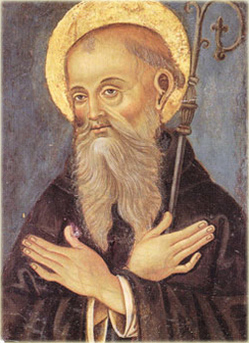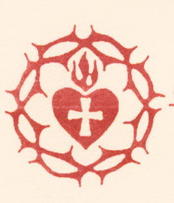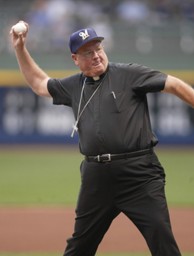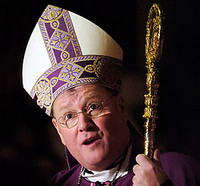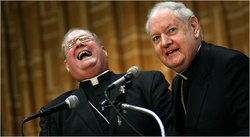In the published comments of Pope Benedict to the distinguished representatives of the Chief Rabbinate of
The Church recognizes that the beginnings of her faith are found in the historical divine intervention in the life of the Jewish people and that here our unique relationship has its foundation. The Jewish people, who were chosen as the elected people, communicate to the whole human family, knowledge of and fidelity to the one, unique and true God. Christians gladly acknowledge that their own roots are found in the same self-revelation of God, in which the religious experience of the Jewish people is nourished.
I sit choir with a group of monks and other Christians praying the Scritpures on a daily basis and I’m coming to understand (judge, evaluate) more and more the connections, i.e., the reality that exists between Jewish and Catholic theology/liturgy. This is especially true in the Psalms but no less with the daily readings from Pentateuch and the Prophets. One of the books I am re-reading selections from these days is Father Richard Veras’ book, Jesus of Israel: Finding Christ in the Old Testament (Servant Books, 2007), who speaks about the promises made to us down through the ages by the Lord, promises of the hundredfold, promises of life, liberation and communion with the Lord as they are revealed in the sacred Scriptures.
For what it’s worth, Pope Benedict said the following 19 years ago when he was still known as Joseph Ratzinger, the CDF Prefect:
Abraham, father of the people of Israel, father of faith, thus become the source of blessing, for in him all the families of the earth shall call themselves blessed. The task of the Chosen People is, therefore, to make a gift of their God – the one true God – to every other people; in reality, as Christians we are the inheritors of their faith in the one God. Our gratitude, therefore, must be extended to our Jewish brothers and sisters who, despite the hardships of their own history, have held on to faith in this God right up to the present, and who witness to it in the sight of those peoples who, lacking knowledge of the one God, dwell in darkness and in the shadow of death.
Down through the history of Christianity, already-strained relations deteriorated further, even giving birth in many cases to anti-Jewish attitudes, which throughout history have led to deplorable acts of violence. Even if the most recent, loathsome experience of the Shoah was perpetrated in the name of an anti-Christian ideology, which tried to strike the Christian faith at its Abrahamic roots in the people of Israel it cannot be denied that a certain insufficient resistance to its atrocity on the part of Christians can be explained by an inherited anti-Judaism present in the hearts of not a few Christians.
Perhaps it is precisely because of this latest tragedy that a new vision of the relationship between the Church and
It is evident that, as Christians, our dialogue with the Jews is situated on a different level than that in which we engage with other religions. The faith witnessed to by the Jewish Bible (the Old Testament for Christians) is not merely another religion to us, but is the foundation of our own faith. Therefore, Christians – and today increasingly in collaboration with their Jewish sisters and brothers – read and attentively study these books of Sacred Scripture, as a part of their common heritage. (Excerpts from Cardinal Ratzinger’s “The Heritage of Abraham: The Gift of Christmas,” L’Osservatore Romano,
In light of all of this public speaking I think today’s allocution by the Pope reveals a consistent line of teaching not only by a man with a keen intellect and a profound faith in the Divinity but also consistent with magisterial teaching of the Holy See. Hence, I don’t think that Benedict’s thoughts today are not throw away lines to ease tensions, real or imaginary between the Catholic Church and the Jewish leadership. Moreover, I also don’t think it’s a political ploy before a papal visit to the
My sense is that the Pope is rather genuine in his judgment that Christians and Jews need each other because each provide an interpretative key in self-identity and the theological journey we both make toward our destiny. For Christians we need to grasp what is being done (the action) and what is said (the content) in order to take seriously our own faith in Jesus Christ as Lord, Savior and Brother. So no, these remarks today aren’t lines denoting mere policy, mechanical ways to engage a touchy politic serving a group’s interests. These lines reflect not only this pontiff’s thinking but the Church’s self-understanding and theological grounding. Nostra Aetate (1965) and Dabru Emet (2000) like documents demonstrate a commitment from which to work with each other in an effort to know, love and serve the Almighty while coming to understand a common theological and liturgical history. Consequently, Jews and Catholics should not only work on projects that serve the common good but also work for greater understanding in the process of dialogue leading to the eternal.
Some will say that the Pope made a nice gesture by speaking honestly with the Jews. But that would be yet another example of a tyranny of the “nice,” and we don’t need more “nice.” What we need is true honesty, faith and reason before reality. What I believe the Pope is indicating to us is the profound need because it is reasonable as people of faith to draw deeply from the common faith experience in order to discern our relationship with the Lord and to foster a deeper communion between Jews and Christians. We need to understand the reality that’s in front of us, the gift of friendship in faith with others on a similar path to destiny.
